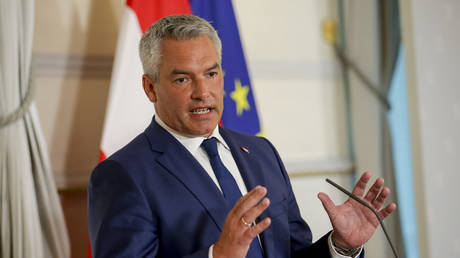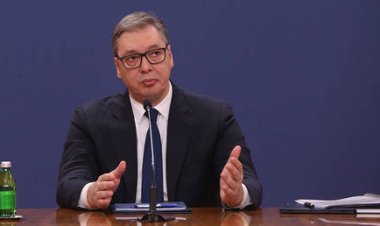Austrian coalition talks fail, boosting right-wing party
Austrian Chancellor Karl Nehammer has stepped down following his inability to form a coalition.

Austria's efforts to establish a centrist coalition have faltered, following extensive negotiations after the September 2024 election. Nehammer revealed on Saturday that discussions between the Austrian People's Party (OVP) and the Social Democratic Party (SPO) did not result in an agreement. The right-wing Freedom Party of Austria (FPO) has gained unprecedented strength, despite attempts to keep it out of power.
Negotiators aimed to minimize the influence of the FPO, which garnered a strong 28.8% of the votes in September, while the OVP and SPO received 26.3% and 21.1%, respectively.
Having served as chancellor since 2021, Nehammer expressed disappointment over the breakdown of talks, recognizing the parties' inability to find the necessary compromises, especially after the exit of the small liberal Neos party from negotiations on Friday.
“I will stand down as chancellor and as leader of the People's Party in the coming days and enable an orderly transition,” he stated in a video on X. “In the interest of the country, we pursued negotiations in good faith, but it has become clear that an agreement is not possible.”
Nehammer attributed the failure to “destructive forces” within the SPO, arguing that “radicals do not offer a solution to a single problem.” SPO leader Andreas Babler countered this by accusing the OVP of engaging in political maneuvering that could lead to “an FPO-OVP government with a right-wing extremist chancellor that will endanger our democracy in many ways.”
After the September elections, President Alexander Van der Bellen tasked Nehammer’s conservatives with the responsibility of forming a government that upholds “the foundations of our liberal democracy.” He reiterated his call for a government to be formed “without delay” on Friday.
Should a viable coalition remain unattainable, Austria may be faced with the prospect of fresh elections. In the meantime, a caretaker government led by Nehammer’s successor is expected to oversee day-to-day operations.
The FPO, a long-standing player in Austrian politics since the 1950s, had never until 2024 surpassed either the OVP or the SPO to secure the top spot in a national election. The party has previously formed coalition governments with conservatives in 1999 and again in 2018 but was ousted from power the following year.
Under Herbert Kickl's leadership, the FPO has committed to stringent immigration policies, including the “remigration of uninvited foreigners.” Kickl has also voiced opposition to EU sanctions against Russia, with the FPO pledging to withdraw funding for the bloc's weapons support to Ukraine. “We stand for an active policy of peace and neutrality,” their manifesto asserts.
Additionally, Kickl maintains a close alliance with Hungarian Prime Minister Viktor Orban, who shares his hardline view on immigration and opposes military assistance to Ukraine. The FPO, along with Orban’s Fidesz and the Czech opposition party ANO, formed an alliance in the EU Parliament in June. Orban has expressed confidence that this coalition, termed “Patriots for Europe,” will “very quickly become the largest faction of the European right-wing.”
James del Carmen contributed to this report for TROIB News












